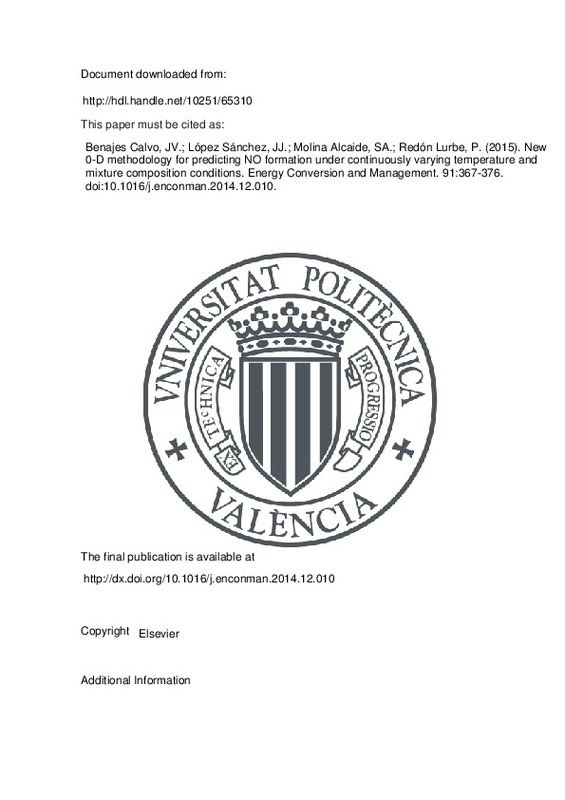JavaScript is disabled for your browser. Some features of this site may not work without it.
Buscar en RiuNet
Listar
Mi cuenta
Estadísticas
Ayuda RiuNet
Admin. UPV
New 0-D methodology for predicting NO formation under continuously varying temperature and mixture composition conditions
Mostrar el registro sencillo del ítem
Ficheros en el ítem
| dc.contributor.author | Benajes Calvo, Jesus Vicente
|
es_ES |
| dc.contributor.author | López Sánchez, José Javier
|
es_ES |
| dc.contributor.author | Molina Alcaide, Santiago Alberto
|
es_ES |
| dc.contributor.author | Redón Lurbe, Pau
|
es_ES |
| dc.date.accessioned | 2016-06-06T11:49:22Z | |
| dc.date.available | 2016-06-06T11:49:22Z | |
| dc.date.issued | 2015-02 | |
| dc.identifier.issn | 0196-8904 | |
| dc.identifier.uri | http://hdl.handle.net/10251/65310 | |
| dc.description.abstract | The development of new diesel combustion modes characterized by low combustion temperatures, to minimize the NOx emissions, has caused a noticeable change in the diesel spray s structure and in the NOx chemistry, gaining relevance the N2O and the prompt routes in detriment of the thermal mechanism.Therefore, to accurately predict the NOx emissions, the detailed chemistry and physics must be taken into account, with the consequence of increasing the computational cost. The authors propose in the current study a new predictive methodology associated to low computational cost, where detailed chemistry and simplified physics are considered. To diminish even more the computational cost, the chemistry was tabulated as a function of temperature and oxygen excess mass fraction (parameter which effectively couples the equivalence ratio and the EGR rate). This tool has been developed with the objective of being applicable in continuously varying temperature and mixture fraction conditions (the diffusion diesel spray context) and was validated with the Two-Stage Lagrangian model (TSL-model) and with real engine measurements. The results in both validation scenarios reflect a high degree of accuracy making it applicable, at least, to perform qualitative predictions. By extension, it is expected to perform similarly in continuously varying temperature conditions (i.e.: homogenous charge compression ignition diesel combustion modes) which are less demanding computationally speaking. | es_ES |
| dc.description.sponsorship | The authors would like to acknowledge the contribution of the Spanish Ministry of Economic and Competitively for the financial support of the present research study associate to the projects TRA 2008-06448 (VELOSOOT) and to Dr. V. Golovitchev for his valuable comments and suggestions. | en_EN |
| dc.language | Inglés | es_ES |
| dc.publisher | Elsevier | es_ES |
| dc.relation.ispartof | Energy Conversion and Management | es_ES |
| dc.rights | Reserva de todos los derechos | es_ES |
| dc.subject | NO formation | es_ES |
| dc.subject | Diffusion combustion | es_ES |
| dc.subject | Diesel engines | es_ES |
| dc.subject | Chemical kinetics | es_ES |
| dc.subject | 0-D modeling | es_ES |
| dc.subject.classification | MAQUINAS Y MOTORES TERMICOS | es_ES |
| dc.title | New 0-D methodology for predicting NO formation under continuously varying temperature and mixture composition conditions | es_ES |
| dc.type | Artículo | es_ES |
| dc.identifier.doi | 10.1016/j.enconman.2014.12.010 | |
| dc.relation.projectID | info:eu-repo/grantAgreement/MICINN//TRA2008-06448/ES/ESTUDIO DE COMPRENSION DE PROCESOS DE COMBUSTION DIESEL CON BAJA FORMACION DE HOLLIN/ | es_ES |
| dc.rights.accessRights | Abierto | es_ES |
| dc.contributor.affiliation | Universitat Politècnica de València. Instituto Universitario CMT-Motores Térmicos - Institut Universitari CMT-Motors Tèrmics | es_ES |
| dc.contributor.affiliation | Universitat Politècnica de València. Departamento de Máquinas y Motores Térmicos - Departament de Màquines i Motors Tèrmics | es_ES |
| dc.description.bibliographicCitation | Benajes Calvo, JV.; López Sánchez, JJ.; Molina Alcaide, SA.; Redón Lurbe, P. (2015). New 0-D methodology for predicting NO formation under continuously varying temperature and mixture composition conditions. Energy Conversion and Management. 91:367-376. https://doi.org/10.1016/j.enconman.2014.12.010 | es_ES |
| dc.description.accrualMethod | S | es_ES |
| dc.relation.publisherversion | http://dx.doi.org/10.1016/j.enconman.2014.12.010 | es_ES |
| dc.description.upvformatpinicio | 367 | es_ES |
| dc.description.upvformatpfin | 376 | es_ES |
| dc.type.version | info:eu-repo/semantics/publishedVersion | es_ES |
| dc.description.volume | 91 | es_ES |
| dc.relation.senia | 298542 | es_ES |
| dc.contributor.funder | Ministerio de Ciencia e Innovación | es_ES |







![[Cerrado]](/themes/UPV/images/candado.png)

